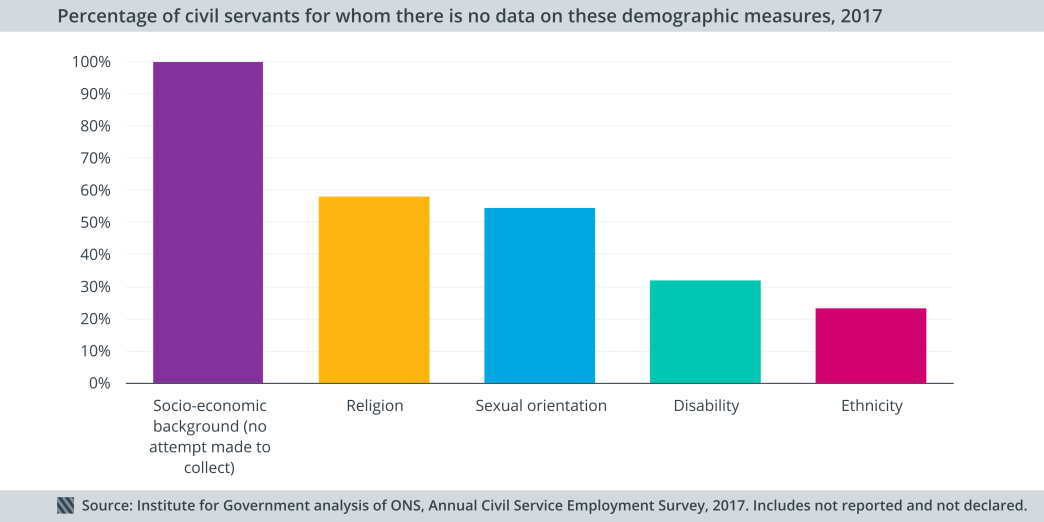Gavin Freeguard argues that the Prime Minister’s race disparity audit shows how data and transparency can help achieve political goals.
Employment rates are higher for white people in the UK than for ethnic minorities. People from an ethnic minority are underrepresented at senior levels in public life. White and black children don’t perform as well at school as children from an Asian background.
These are just some of the key findings from Ethnicity Facts and Figures, the Prime Minister’s audit on race equality in the UK. It makes uncomfortable reading – in Theresa May’s own words, “there is nowhere to hide. These issues are now out in the open.”
Politicians can use data and transparency to achieve political aims
In her speech in Downing Street upon becoming Prime Minister, Theresa May identified a clear problem: the UK was falling short of being “a country that works for everyone”. A few weeks later, she commissioned the audit published today to understand and “shine a light” on the racial “injustices” that exist.
Today’s audit certainly does that. It demonstrates the value of being open, despite the difficult truths it reveals: the media have covered it extensively, politicians and other senior decision makers cannot ignore it, and making the data available allows others to explore it and add their own insights.
We should not get ahead of ourselves, of course. Defining and exposing a problem is one thing, but the challenge is now sustaining the political drive to do something about it. The Prime Minister has announced the creation of a Cabinet Office unit to co-ordinate further work – and there are certainly useful examples to learn from. It’s vital that this unit (and others) uses this data to inform what comes next.
The lack of data can often be as important as the data itself
The need for the race disparity audit reveals another problem: government too often does not have the data it needs to inform policy and decision making.
Take the civil service, for example, where we lack data on its composition, including ethnicity, sexual orientation, faith and socio-economic background.

There may be very good reasons why civil servants don’t declare some personal characteristics (and the Office for National Statistics (ONS) doesn’t gather data on socio-economic background) but this makes it difficult to know how minority groups are represented in the civil service and to understand whether initiatives to improve diversity are working.
It’s not just about diversity, either: departments aren’t using other workforce data to properly manage their operations, too often seeing data publication as a tick-box transparency exercise and not using the data themselves.
A step towards transparency?
Today’s audit comes from a Prime Minister not always associated with transparency: we’ve previously noted the opacity of her Home Office and the fading political drive behind the transparency agenda. But May has now used data and transparency to achieve political goals on at least a couple of occasions – on stop and search, as well as today’s race disparity audit.
The Conservative manifesto commitment to maintain the UK’s position as a world leader in open data provides a real opportunity to do more on this. The reception of today’s race disparity audit – a demonstrable use of data to achieve political goals – shows why that opportunity should be grasped.
- Supporting document
- Whitehall monitor 17.pdf (PDF, 2.17 MB)
- Topic
- Civil service